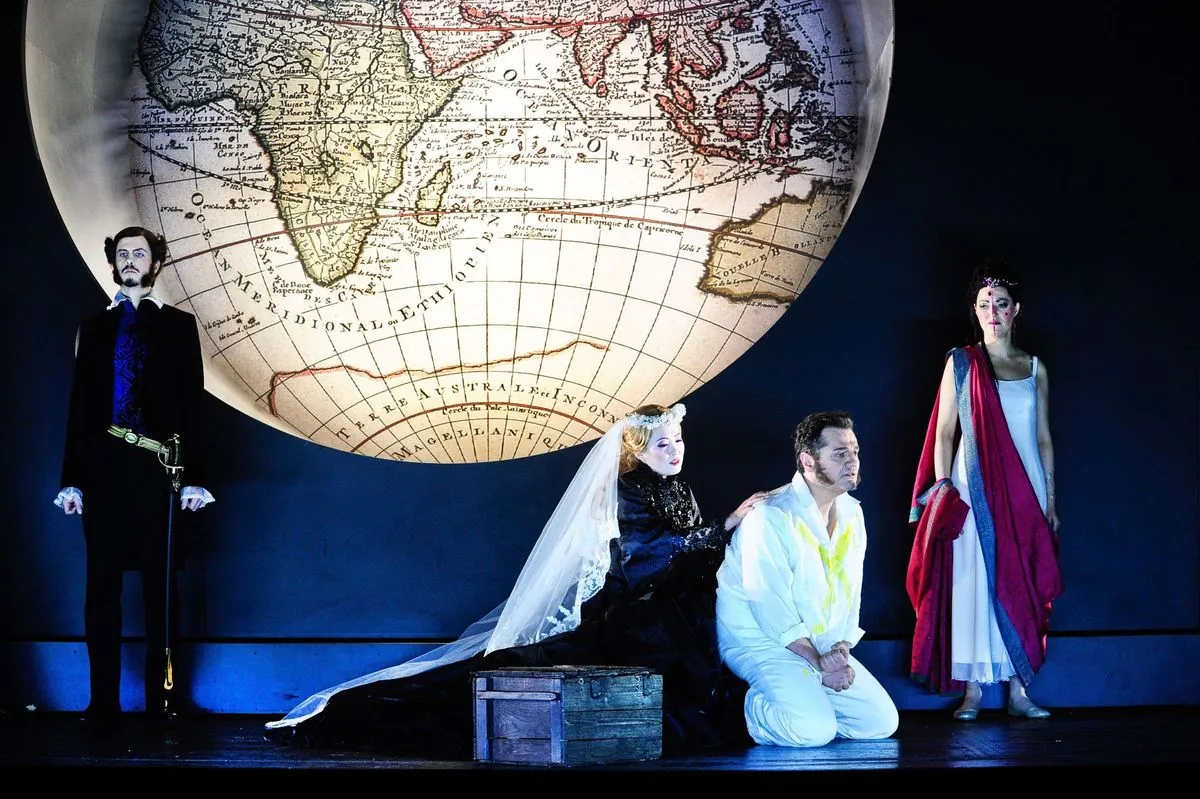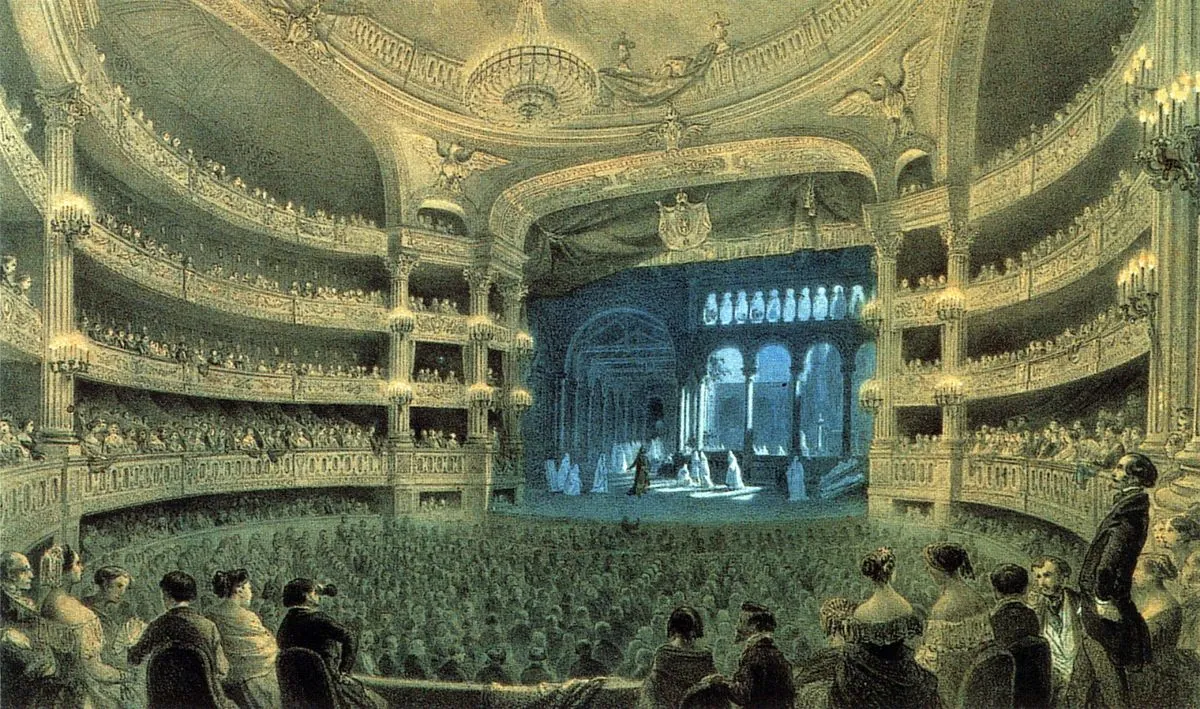Meyerbeer's Melodrama: A Timeless Mirror to Modern Society
Giacomo Meyerbeer, once a celebrated opera composer, is rediscovered through a rare staging of "Le Prophète". His melodramatic style, often dismissed, proves surprisingly relevant to today's societal challenges.

Giacomo Meyerbeer, a once-celebrated opera composer of the 19th century, has long been overlooked in the annals of music history. However, a recent production of his opera "Le Prophète" at the Bard SummerScape festival has reignited interest in his work and sparked discussions about its relevance to contemporary society.
Meyerbeer, born Jakob Liebmann Beer in 1791 near Berlin, was a pioneer of French grand opera and one of the most frequently performed composers of his time. His operas, known for their lavish stage effects and blend of dramatic and musical elements, were spectacles that drew audiences and fellow artists alike.
"The opening night audience included Charles Dickens and Ivan Turgenev, and the composers Chopin, Verdi and Berlioz."
This quote illustrates the immense popularity and influence Meyerbeer held during his lifetime. His works were not only entertainment but also cultural events that attracted the greatest minds of the era.
Meyerbeer's style, often described as melodramatic, has been both praised and criticized. In today's context, melodrama is often dismissed as overly emotional or unrealistic. However, the recent staging of "Le Prophète" challenges this perception, suggesting that melodrama may be more relevant to our current societal issues than we realize.
The opera's plot, centered around a religious opportunist who manipulates public sentiment, resonates with contemporary concerns about populism and demagoguery. The production at Bard, directed by Christian Rath, chose not to modernize the setting but instead allowed the inherent drama of Meyerbeer's work to speak for itself.

This approach revealed the power of melodrama to reflect the extreme polarities present in our society. The stark contrasts between good and evil, and the impossible choices faced by characters, mirror the real-world dilemmas many people face today. From economic inequality to political manipulation, the exaggerated world of melodrama may be closer to our reality than we care to admit.
Richard Wagner, once supported by Meyerbeer, later turned against him with antisemitic attacks that contributed to the decline of Meyerbeer's reputation. This historical context adds another layer of relevance to Meyerbeer's work, highlighting the persistent issues of prejudice and cultural erasure.
Despite the challenges, there are signs of a Meyerbeer revival. A new recording of "Le Prophète" was released on June 28, 2024, and there have been occasional new productions in Europe. However, reintroducing Meyerbeer to modern audiences remains difficult, particularly in America where there is a preference for more optimistic narratives.
The rediscovery of Meyerbeer's work offers an opportunity for audiences to engage with a different form of artistic relevance. Rather than seeking direct parallels to contemporary issues, his operas present a world that, while seemingly exaggerated, may be uncomfortably close to our own. This challenging perspective could provide valuable insights into the complexities of our society, making Meyerbeer's melodramas not just historical curiosities, but powerful tools for social reflection.


































